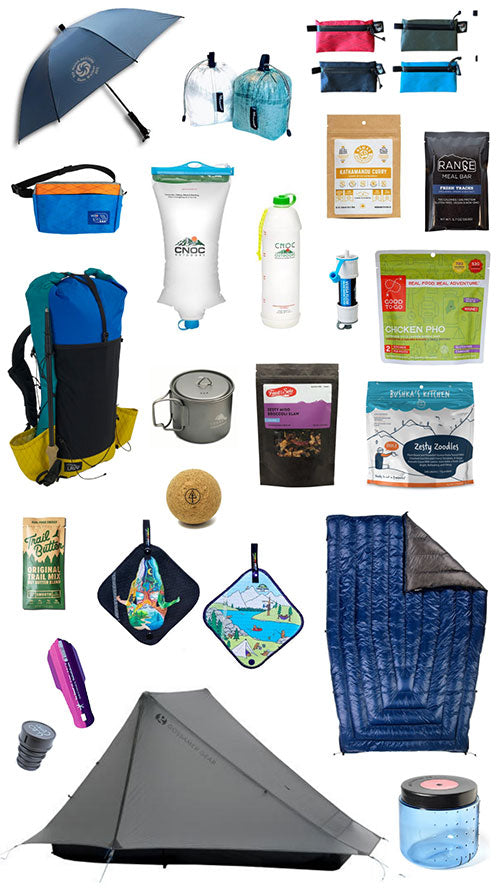
It’s done. The BIG ADVENTURE. You planned and planned and trained and prepped. It dominated your life, it defined you, it absorbed all conversation. It’s over.
Maybe it was a wild success. Maybe it was a little embarrassing or disappointing. Whatever it was, maybe you’re left feeling rather adrift. You’re feeling a bit aimless, wondering ”What even happened out there?” and “What’s next?”
It’s normal after a big goal is over to have a bit of the blues, to feel a little at a loss. The post adventure “Blahs” are something you can help yourself with.

Here are ten questions to ask yourself. They should help you really absorb your experience and set new goals to inspire and motivate you.
It’s quite the list, feel free to work through it over a couple days. It might be something you journal about or something you talk through with a friend. When you’re done you’re going to feel amazing!
-
How many stars would you give your adventure?
Pretend you’re giving your adventure a Google review. How would you rate it and why? This isn’t a judgment on yourself, it’s an overall ranking for the whole thing. Would you do it again? Would you recommend it to others?
-
What worked well?
List three things that you’re proud of. Why did it work out so well? How can you increase the chances for that kind of success in the future?
-
What needed work?
List three things that didn’t go well. What would you do to improve the situation in the future? Even if you can’t imagine being in that situation again, what would you advise a friend?
-
Did you meet your experience goals?
This is different than if you completed the hike or met your mileage goal. What did you want to get out of the experience of doing that hike? It is possible to massively fail at following your route plan and getting to the finish AND completely succeed in getting stronger, staying safe, reinvigorating your spirit… or whatever reason you wanted to be out there in the first place. In what ways did you or did you not have the kind of experience you wanted to have?
-
What else do you want to do with your life?
List ALL the things. Don’t get myopic and stuck on the next obvious thing. Include anything that you want your life to involve. This could be the next big hike, or an entirely different type of adventure, or an indoor sedentary hobby, or a career focus, or a competitive sport, or…
-
Of that list, what is the ONE thing that will next take center stage?
Consider practical limitations. These could be financial, or they could be about needing to prioritize family. Consider your long-term needs. For example, your mind may want more hiking right now, but your knees or back might need some physical therapy. Of course you should also consider what is most tugging at your heart. What next goal are you excited to dive head first into?
-
What is the timeline for this next big goal?
If it’s the next milestone on a path you’re already on, maybe it’s just 6 to 12 months away. If it’s a new divergent path and you’re breaking ground with a lot of skills to learn, maybe it’s 1 to 5 years away. If that’s the case, you’ll need some intermediate milestones to connect the dots from where you are now to where you're headed.
-
What are your immediate priorities to get you to the next milestone?
Don’t get lost in the ten bazzilion things you need to do for this next goal. List no more than three things you need to focus on to achieve the next step. Maybe there is a specific skill you need to learn and practice. Maybe there’s a specific area of your fitness that needs improvement.
-
What support do you need for this goal?
Are you getting stuck somewhere about something? Maybe it’s even knowing that you don’t know enough. Maybe it’s not technical, but about the social/ emotional support you need from friends or family. No one achieves big things in isolation. Identify in what ways you need support.
-
What are your immediate action items?
List the three things you can take action on tomorrow.
Now, Go! Do! Be! You’re going to be so proud of yourself.
*If your adventure turned tragic, or you’re struggling with feelings of failure, you are not alone. In wilderness medicine the psychological aftermath of accidents are called “stress injuries.” Don’t let yourself sink into the void. Getting help can be the bravest thing you can do.
Please take this online depression screening and tell the people who care about you. Reach out for support. There are lots of resources to Google, the Anxiety and Depression Association of America is one of them.
For more information about wilderness-based psychological first aid and stress injuries check out this article from The American Alpine Club and episode 34 from The Sharp End Podcast.

Kym and Will are the owners of Zest Ed. Kym coaches recreational endurance adventure athletes to achieve their goals while teaching them about the process of training. When not racing or adventuring, they live in an old apartment in Minneapolis with their kitty Pigeon and are expecting the adventure of parenthood to start January 2022!
These 10 questions are based on the fundamental process of debriefing and planning Kym does with her clients. Download your free "What's Next: The Life Cycle Of a Goal" to help you at every stage of your journey.
















